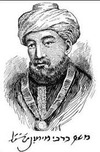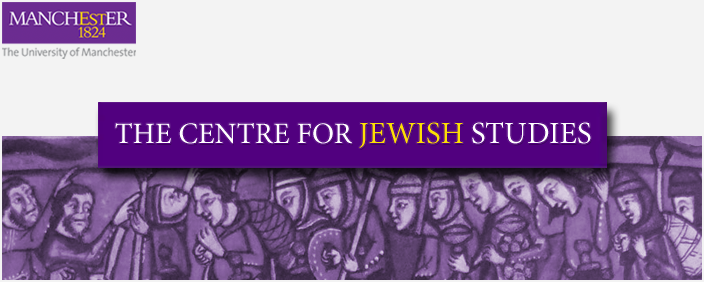Why Read Jewish Studies?
WHAT IS 'JEWISH STUDIES'?
'Jewish studies' may be understood broadly as the study of Jewish history and culture, in all its manifestations. To study it at university level is to combine the great traditions of disciplined academic research with the richness of Jewish culture and experience. Its intellectual value - and its value in the marketplace - is no different from that of any Humanities degree. At the same time, it appeals to many Jewish students as providing a unique insight and source of understanding of their own tradition. You do not have to be Jewish; Jewish Studies courses are taken also by many non-Jewish students, who appreciate the need to understand the historic contribution of the Jewish people and Jewish culture to civilisation. Above all, Jewish Studies at university involves dialogue, between traditional Jewish sources on the one hand and the critical methodology of the university on the other.
WHAT WILL I STUDY?
The following areas are most commonly found in Jewish Studies degrees:
(i) Judaism (its theological beliefs and practises, and the diversities to be found within it — often together with its historical interaction with other faiths, such as Christianity and Islam);
(ii) Jewish literature (from the Bible, the Dead Sea Scrolls and Rabbinic literature, most of it proceeding from religious premises, to the literature of the modern age, reflecting Jewish interaction with the culture of the non-Jewish environment, whether in the shtetl or modern New York);
(iii) Jewish languages, of which Hebrew and Yiddish are merely the best-known;
(iv) Jewish history, tracing the fascinating development of Jewish life through the ages, and focusing upon the seminal moments of the Holocaust and the establishment of the State of Israel in the modern period;
(v) Jewish philosophy and mysticism, which bloomed in the Middle Ages and may be regarded, today, as enjoying a Renaissance, with modern figures like Emmanuel Levinas addressing explicitly both the modern philosophical agenda and their traditional Jewish roots;
(vi) Jewish society, using demographic and sociological methods to analyse the present state of the Jewish community, and its problems. More specialised studies vary from one university to another. Manchester at present has particular strength in Jewish History and Literature in Late Antiquity (including Dead Sea Scrolls), Jewish Background to Christian Origins, Medieval Jewish Thought, Jewish Mysticism, Jewish Magic, Jewish-Christian Relations, Darwinism and Jewish Thought, Modern Anglo-Jewish History, Modern Jewish Thought.
More specialised studies vary from one university to another. Manchester at present has particular strength in Jewish History and Literature in Late Antiquity (including Dead Sea Scrolls), Jewish Background to Christian Origins, Medieval Jewish Thought, Jewish Mysticism, Jewish Magic, Jewish-Christian Relations, Darwinism and Jewish Thought, Modern Anglo-Jewish History, Modern Jewish Thought.
 Jewish culture in the past has been enormously enriched by its interaction with other traditions. The Ancient Near East provided the cultural environment in which biblical literature developed its own unique voices; early Rabbinic literature received stimulus from Hellenistic rhetoric; Jewish philosophy (such as that of Maimonides) can hardly be understood in isolation from Islamic thought. For over a century, the modern university has provided a new context for such interactions. It affords, in addition, an important meeting point for the mutual understanding of different traditions within Judaism, a neutral ground in which Orthodox and Progressive approaches can express themselves without threat (or compromise) and with respect for the viewpoint of the other. It is hardly necessary to stress the importance of this opportunity for the future of Jewish life, so much threatened nowadays by polarisation.
Jewish culture in the past has been enormously enriched by its interaction with other traditions. The Ancient Near East provided the cultural environment in which biblical literature developed its own unique voices; early Rabbinic literature received stimulus from Hellenistic rhetoric; Jewish philosophy (such as that of Maimonides) can hardly be understood in isolation from Islamic thought. For over a century, the modern university has provided a new context for such interactions. It affords, in addition, an important meeting point for the mutual understanding of different traditions within Judaism, a neutral ground in which Orthodox and Progressive approaches can express themselves without threat (or compromise) and with respect for the viewpoint of the other. It is hardly necessary to stress the importance of this opportunity for the future of Jewish life, so much threatened nowadays by polarisation.
Students choose degrees in the Humanities because they anticipate that the subject-matter will respond to some inner need or striving — a need to know something about oneself as much as about the subject-matter. In this respect, the appeal of Jewish Studies requires no apology.




